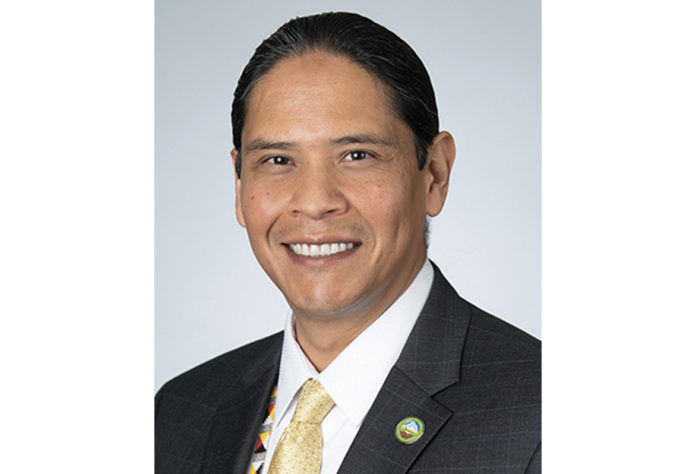by Jonodev Chaudhuri
The United States Supreme Court’s 2021-22 term brought significant victories, and losses, for Indian Country. In Ysleta del sur Pueblo v. Texas, the Court, in an opinion authored by Justice Gorsuch (joined by Justices Breyer, Sotomayor, Kagan, and Barrett), adopted a reading of the Ysleta del Sur Pueblo and Alabama and Coushatta Indian Tribes of Texas Restoration Act that limits the statute’s prohibition against gaming to only those activities prohibited, rather than regulated, by the State of Texas. This decision effectively affirmed the role of Congress in legislating over Indian affairs and has significant implications for tribal sovereignty and tribal economic development.
But it is hard to square Ysleta del sur with another decision issued by the Court this past term: Oklahoma v. Castro-Huerta. In Castro-Huerta, the very same Court disregarded its own longstanding doctrine upholding the exclusive authority of Congress over Indian affairs and concluded that the General Crimes Act affords states with criminal jurisdiction over crimes committed against Indian victims on “Indian Country” lands, despite the fact that Congress itself did not grant states this jurisdiction. In reaching this conclusion, Justice Kavanaugh, in his majority opinion, declared the Court’s 1832 decision in Worcester v. Georgia to be overturned, claiming Worcester had actually been overturned in a 1962 decision, Village of Kake v. Egan. Village of Kake, however, dealt with off-reservation fishing rights in Alaska – not crimes committed on a reservation against a tribal citizen in their own home. According to Justice Kavanaugh, Worcester was simply a misunderstanding. However, Indian law experts across Indian Country agree that the majority opinion in Castro-Huerta flips Indian law on its head and creates significant problems for public safety in Indian Country.
But the Court’s decision in Castro-Huerta also carries consequences for tribal economic development, as the decision on the whole conflates civil law analysis with criminal. In adjudicating the plain meaning of the General Crimes Act, Justice Kavanaugh employed the Bracker balancing test. Under Bracker preemption may occur if state exercise of jurisdiction unlawfully infringes on tribal self-government. It is a test in the civil context that balances the interests of tribes, states, and the federal government. Until Castro-Huerta, it had not been applied in the criminal context.
The problem in applying the civil Bracker test to the facts of this criminal case is that the Court found an absence of preemption in Castro-Huerta, concluding that the exercise of state criminal jurisdiction over a non-Indian stepfather abusing a tribal citizen child did not infringe on tribal government. It is difficult to imagine what could infringe on tribal self-government more than interfering with a sovereign’s right to prosecute criminals who abuse child citizens in their own homes.
What does this have to do with gaming and tribal economic development? Everything. The Court’s earlier decision in Ysleta del sur signals the Court’s continued understanding that, as the Court previously held in Cabazon, tribes have the inherent right to engage in gaming and economic development on tribal lands, and states have no jurisdiction to regulate Indian gaming on tribal lands unless or until Congress acts to give them such jurisdiction. Although Castro-Huerta does not directly call into question this analysis or reasoning, the decision creates uncertainty about when and where the Castro-Huerta Court’s preemption analysis will be applied, and how.
Ultimately, the Castro-Huerta Court’s departure from preserving the exclusive authority of Congress to legislate over Indian affairs raises concerns for the role Congress has typically played in preserving tribal economic development against intrusions from states and state regulation. Technically, the Court’s discussion of state authority over tribal lands, beyond the interpretation of the General Crimes Act, constitutes dicta. But the discussion in Castro-Huerta should not be ignored.
As advocates for tribal sovereignty and tribal economic development, our goal should be to ensure that the holding in Ysleta del sur is upheld and enforced, and that the dicta in Castro-Huerta becomes irrelevant. To that end, Congress’s exclusive authority over Indian affairs will need to be restored, most likely through legislative action. Indian Country continues to face threats in the Supreme Court in the upcoming term, specifically in the Brackeen v. Haaland case where plaintiffs are asking the Supreme Court to conclude that the Indian Child Welfare Act violates the Tenth Amendment and states’ rights. Brackeen will be argued on November 9th. In the meantime, it is critical that we come together and remain unified in our request that Congress take action to address the public safety crisis created by Castro-Huerta, and further, cement its own role as the only branch of the U.S. government that has the requisite authority to decide how and when states are able to exercise jurisdiction over our citizens and tribal lands.
Jonodev Chaudhuri is Principal at Chaudhuri Law and Ambassador of the Muscogee (Creek) Nation. Chaudhuri served as Chairman of the National Indian Gaming Commission from 2013-2019. He can be reached by calling (480) 216-9483 or email jchaudhuri@chaudhurilaw.com.















































